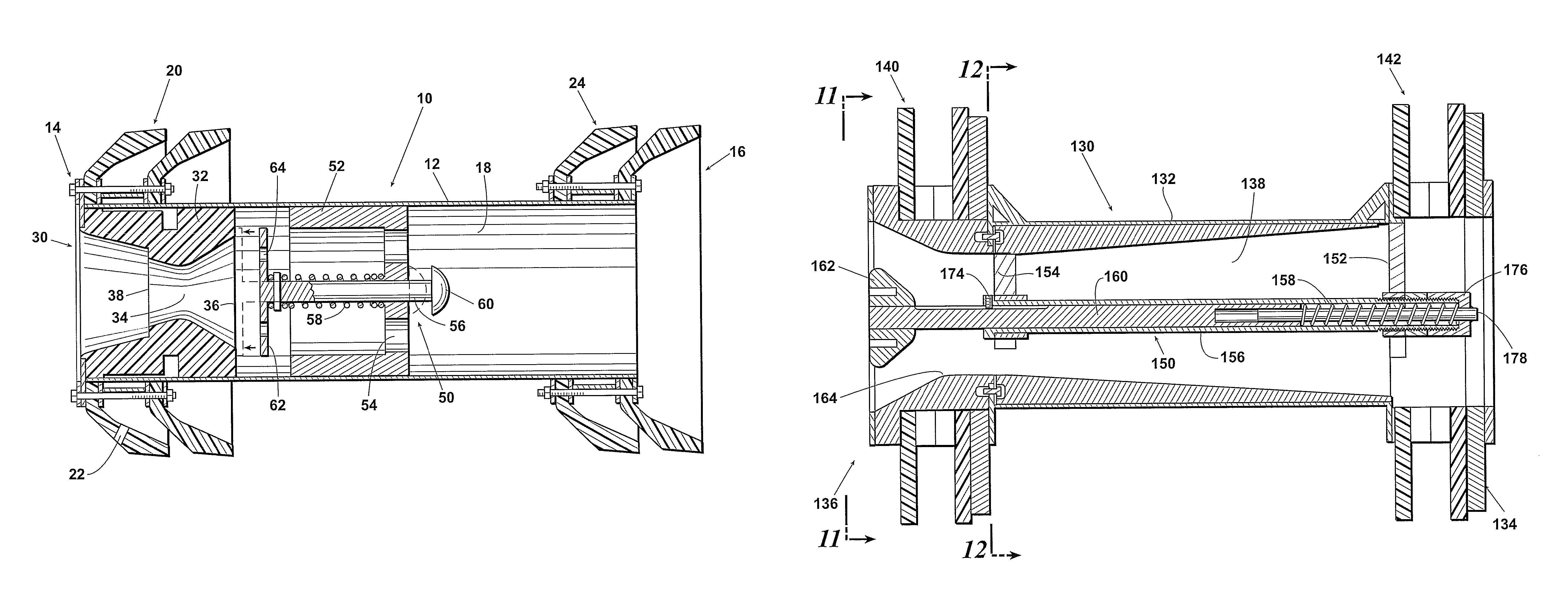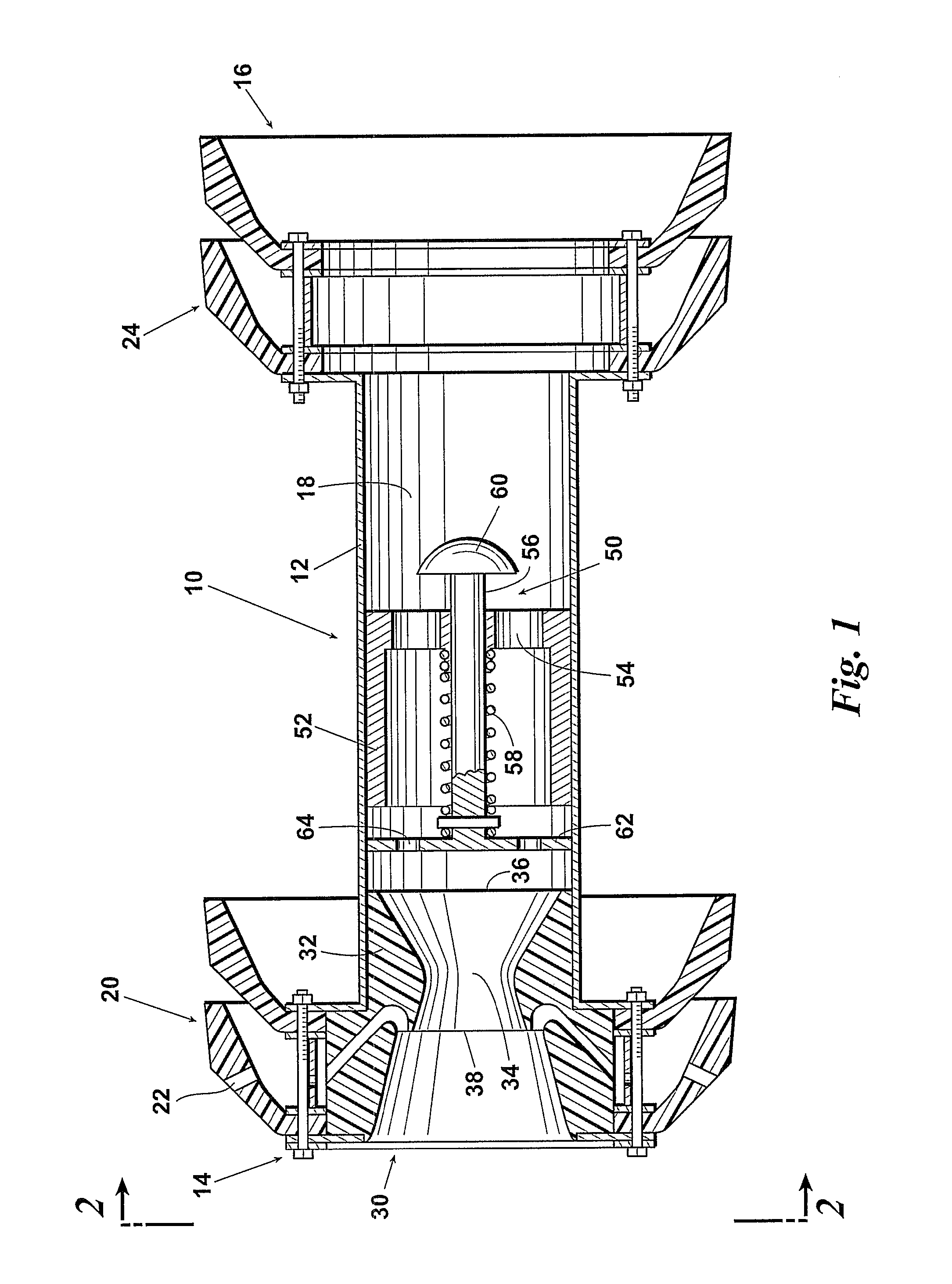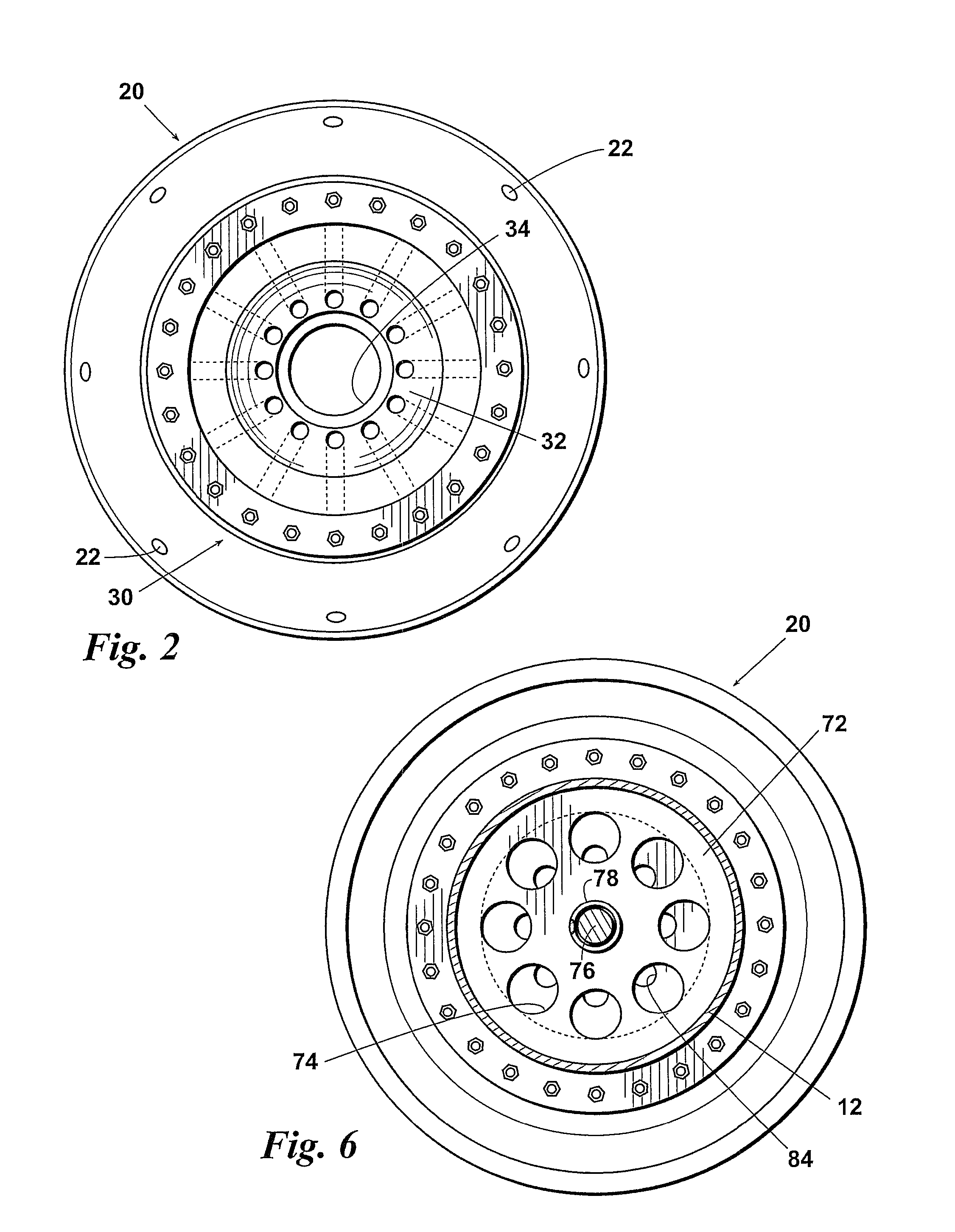Speed regulated pipeline pig
a technology of pipeline pigs and speed regulation, applied in the field of pipeline pigs, can solve the problems of requiring means for increasing the speed of pigs, not preventing pigs from stalling, and not preventing, so as to reduce the bypass flow and minimize the effect of the “bouncing” effect of the stopper
- Summary
- Abstract
- Description
- Claims
- Application Information
AI Technical Summary
Benefits of technology
Problems solved by technology
Method used
Image
Examples
Embodiment Construction
[0030]Preferred embodiments of a speed regulated pipeline pig will now be described by making reference to the drawings and the following elements illustrated in the drawings:
[0031]
10Pipeline pig12Body14Forward end16Rearward end18Passageway20Forward sealing cups22Perforation24Rearward sealing cups30Nozzle32Insert34Venturi36Inlet side38Discharge side40Interior surface50Modulating valve52Insert54Port56Plunger58Tension spring60Head62Plate64Port70Modulating valve72Insert74Port76Plunger78Compression spring80Head82Plate84Port86Angular surface88Arcuate surface130Pipeline pig132Body134Forward end136Rearward end138Passageway140Rearward sealing discs142Forward sealing discs150Modulating valve152Bracket154Bracket156Housing158Spring160Plunger162Valve head164Venturi166Inlet side168Split collar170Pin172Bolt174Set screw176Capture nut178Bolt
[0032]Referring to the drawings, and first to FIGS. 1 to 3, a pipeline pig 10 having a longitudinal, cylindrical body 12 has a forward end 14, a rearward end 16...
PUM
 Login to View More
Login to View More Abstract
Description
Claims
Application Information
 Login to View More
Login to View More - R&D
- Intellectual Property
- Life Sciences
- Materials
- Tech Scout
- Unparalleled Data Quality
- Higher Quality Content
- 60% Fewer Hallucinations
Browse by: Latest US Patents, China's latest patents, Technical Efficacy Thesaurus, Application Domain, Technology Topic, Popular Technical Reports.
© 2025 PatSnap. All rights reserved.Legal|Privacy policy|Modern Slavery Act Transparency Statement|Sitemap|About US| Contact US: help@patsnap.com



